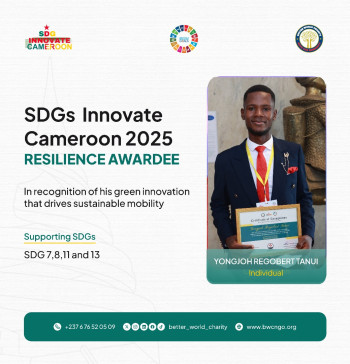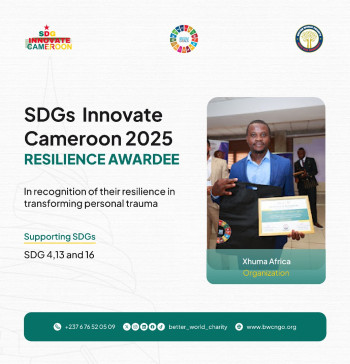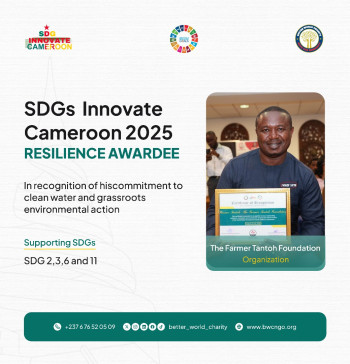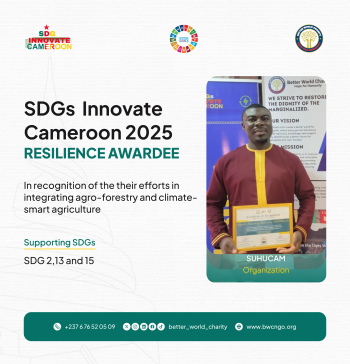Agriculture remains the backbone of Cameroon’s economy,
supporting millions of smallholder farmers and contributing substantially to
the country’s GDP. Among various crops, tomato production holds significant
potential due to its high demand both locally and regionally. Yet, despite
abundant harvests, nearly 45% of Cameroon’s annual tomato yield is lost after
harvest. This staggering level of post-harvest loss undermines farmers'
livelihoods, exacerbates food insecurity, and restricts agricultural sector growth.
These losses occur largely due to inadequate infrastructure
for proper handling, processing, storage, and transportation. Limited access to
preservation technologies means that fresh produce spoils quickly in Cameroon’s
tropical climate, often before reaching markets or processing centers. The Food
and Agriculture Organization (FAO) estimates that around 256 million Africans
experience malnutrition, a crisis partly fueled by such inefficiencies that
reduce the availability of nutrient-rich foods like tomatoes and peanuts.
Agro-Revolution emerges as a vital, innovative response
to these challenges. The project seeks to transform the post-harvest landscape
by introducing value addition processes that convert perishable produce into
long-lasting, marketable goods, thereby reducing waste, stabilizing supply, and
improving farmers’ incomes.
Transforming Tomatoes into Value-Added Products
Central to Agro-Revolution’s strategy is addressing the
post-harvest losses of tomatoes by converting them into tomato paste and other
processed products. Tomato paste is a staple ingredient in households,
restaurants, and food processors, offering longer shelf life and a concentrated
source of nutrients compared to fresh tomatoes. The transformation process
involves using natural preservation techniques that maintain nutritional
quality while extending usability.
By enabling farmers and local processors to produce tomato
paste, Agro-Revolution not only helps preserve a significant portion of the
harvest but also opens up new market opportunities beyond the fresh tomato
supply chain. This shift from selling fresh produce to value-added goods means
more stable pricing, less spoilage-related loss, and improved profitability.
Diversifying with Peanut Processing
In addition to tomatoes, the project supports the processing
of peanut seeds into peanut butter, another highly demanded food product with
wide culinary use across Cameroon. The peanut butter is produced using natural
processing methods that emphasize purity and healthfulness, without harmful
additives or preservatives.
This diversification serves multiple purposes: peanuts
provide an important source of protein and fat in the diet, peanut butter has
broad market appeal, and processing peanuts locally adds complementary income
sources for farmers involved in both peanut and tomato cultivation.
Empowering Smallholder Farmers
A cornerstone of Agro-Revolution’s approach is collaboration
with local farmers. By providing practical training, resources, and access to
processing facilities, the project empowers farmers to better manage their
harvests. Farmers learn best practices in handling, sorting, and storing
produce to minimize damage before processing.
Agro-Revolution also works closely with farmer cooperatives
and community groups to strengthen collective action, knowledge sharing, and
bargaining power. This inclusive methodology ensures that benefits reach
smaller producers who are often marginalized in traditional supply chains.
The training includes improved post-harvest management
techniques such as:
- Sorting
tomatoes by ripeness and quality to prioritize processing,
- Using
shade and ventilated storage areas to reduce spoilage,
- Adopting
hygienic practices to ensure product safety and quality,
- Timing
harvest and processing optimally to maximize shelf life.
These measures collectively help reduce losses, improve
product quality, and allow farmers to capture greater value from their produce.
The Role of UBUNTU FOODS: Building a Community Brand
Agro-Revolution markets its processed products under the
brand UBUNTU FOODS, a name inspired by the African philosophy of community
solidarity and mutual support. UBUNTU FOODS symbolizes the project’s commitment
to nurturing sustainable agricultural ecosystems where farmers, processors, and
consumers benefit together.
Through UBUNTU FOODS, Agro-Revolution plans to create
consumer awareness about the importance of reducing food waste and supporting
local production. The brand emphasizes quality, sustainability, and social
impact — appealing to conscious consumers who want to contribute to community
development.
The products will undergo quality control and packaging
improvements to meet both local and regional standards, thus increasing
competitiveness and enabling access to wider markets including urban centers
and export opportunities.
Goals and Impact Targets
Agro-Revolution sets a measurable target of reducing
post-harvest losses by at least 10% by 2035. Achieving this objective would
represent substantial improvements in food availability, economic resilience
for farmers, and sustainability in the agricultural sector.
Reducing these losses translates into:
- Increased
food supply to local and national markets,
- Enhanced
farmer incomes through value addition and better product pricing,
- Improved
nutrition by preserving vitamins and minerals in processed foods,
- Strengthened
rural economies with job creation in processing and marketing.
Since the tomato processing sector in Cameroon has
historically struggled due to factory closures and insufficient capacity,
Agro-Revolution aims to fill this critical gap using decentralized,
community-based processing units. This model reduces reliance on expensive and
distant centralized factories while fostering local entrepreneurship.
Aligning with National and Global Food Security Initiatives
The project complements Cameroon’s national agricultural
development plans and food security policies by addressing structural
weaknesses in post-harvest handling. It contributes to global Sustainable
Development Goals (SDGs) by targeting:
- SDG 2
(Zero Hunger): Reducing food loss helps ensure more consistent food
availability.
- SDG 1
(No Poverty): Increasing farmers’ earnings reduces rural poverty.
- SDG 12
(Responsible Consumption and Production): Minimizing waste promotes
sustainable use of resources.
- SDG 8
(Decent Work and Economic Growth): Value addition creates rural jobs
and stimulates local economies.
Sustainability and Scaling Prospects
Agro-Revolution’s model is designed to be sustainable and
scalable. Key features supporting this include:
- Training
‘trainers’ who can cascade knowledge to more communities,
- Using
affordable, locally appropriate technology and natural methods reducing
dependence on costly inputs,
- Forging
partnerships with government agencies, NGOs, and private sector actors to
expand resources and market access,
- Building
a replicable value chain approach that can be adapted for other crops or
regions.
With sustained support and investments, Agro-Revolution
envisions expanding beyond tomatoes and peanuts to incorporate additional food
products at risk of seasonal spoilage, thus broadening its impact on food
security and rural livelihoods.











